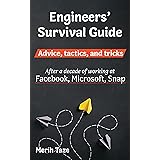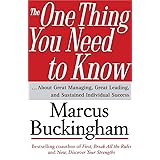A curious scenario often unfolds when individuals seek professional advancement or new career paths. They instinctively understand the value of connections, yet a profound sense of paralysis can frequently set in when attempting to utilize their existing network. This feeling might stem from uncertainty about how to initiate contact or what precise questions should be posed. The insights offered by Tom Friel in the video above succinctly address these common dilemmas, illuminating the strategic approach required for effective professional networking.
Most professionals significantly underestimate the true scale of their personal and professional networks. It is often believed that one’s network comprises only immediate contacts, overlooking the vast interconnected web of relationships extending far beyond. A broader perspective reveals that a network actually includes everyone known by your direct connections, and then everyone known by those secondary connections, creating an exponentially larger pool of potential resources.
Unlocking Your Enormous Professional Network
The concept of an “enormous network” might initially seem abstract, but its practical implications are quite profound. Consider the people within your immediate professional sphere, your former colleagues, university alumni, and even casual acquaintances. Each of these individuals represents a gateway to countless others, forming what could literally be hundreds of thousands of potential connections. This expansive web includes anyone who might be willing to assist in your professional journey, even if their identity is not yet known to you.
For instance, an alumnus from your university, perhaps from a specific business school like Stanford GSB, is often predisposed to assist a fellow graduate. These latent connections are not always visible until a specific need arises, prompting a systematic exploration of potential pathways. The strength of these distant ties often lies in their sheer volume and the surprising willingness of individuals to extend a helping hand when approached correctly.
The Power of Specificity in Outreach
One of the most critical distinctions in effective professional networking involves the nature of your request. A general, unfocused inquiry can often be perceived as a burden, placing the onus of discovery and effort on the person you are contacting. This approach is rarely productive and often leads to missed opportunities, as individuals are generally unwilling to undertake extensive investigative work on behalf of someone else.
Conversely, a highly specific request demonstrates thorough preparation and respect for the other person’s time. When an individual has clearly identified their target and articulated a precise reason for connection, the likelihood of a positive response increases dramatically. This strategic communication minimizes effort for the intermediary and signals a serious, well-considered professional intent. Such targeted engagement is frequently viewed with greater credibility and a higher propensity for action.
For example, instead of broadly asking for an introduction to “some venture capitalists,” a more effective approach would be to articulate a very precise request. This might involve stating your relevant experience, identifying a particular venture capitalist with specific interests, and explaining how your project aligns with their known endeavors. This focused query makes it simple for a contact to quickly assess the viability of an introduction, potentially requiring only a few moments to facilitate a valuable connection.
Cultivating Connections: Beyond the Initial Ask
The interaction does not conclude once an introduction has been made or a favor has been granted; in fact, this is merely the beginning of cultivating a lasting professional relationship. Showing genuine appreciation and providing updates are crucial steps that are often overlooked, yet they hold significant long-term value. Neglecting these courtesies can subtly erode future opportunities and create a perception of transactional engagement.
Following up after an introduction or a meeting serves multiple purposes. It confirms that the facilitated connection was valued and utilized, satisfying the natural curiosity of the person who extended assistance. Moreover, it reinforces a positive image of you as a considerate and professional individual, leaving the door open for future interactions. This simple act of communication can pay substantial dividends, building goodwill that encourages continued support down the line.
The Long-Term Value of Gratitude and Feedback
Imagine a scenario where a contact facilitates an introduction to a key industry figure, like Josh Green from Moore Davidow, as mentioned in the video. After your meeting, a prompt email expressing gratitude and a brief update on the outcome is invaluable. Even if the meeting does not immediately lead to a concrete opportunity, acknowledging the favor ensures that your contact feels their effort was worthwhile and appreciated. This considerate behavior sets a precedent for future interactions.
Conversely, a common pitfall involves individuals who only reach out when they need something, failing to acknowledge past assistance or maintain ongoing communication. This pattern can lead to contacts becoming less receptive over time, perceiving the relationship as one-sided. Regularly touching base, even for simple check-ins without an immediate ask, helps to nurture these vital professional ties, transforming them into resilient resources for mutual benefit.
Sustaining Professional Relationships with Intentional Engagement
Maintaining an active and engaged network requires deliberate effort and a thoughtful strategy. It is not enough to simply collect business cards or add connections on professional platforms; genuine relationships are built through consistent and respectful interaction. This might involve sharing relevant articles, offering assistance when you are able, or simply checking in periodically to inquire about someone’s professional journey.
The goal is to foster a network characterized by reciprocity and mutual respect, where assistance is offered and received with genuine appreciation. Such an approach transforms networking from a series of opportunistic transactions into a dynamic ecosystem of support and collaboration. The benefits of cultivating a robust professional network, marked by specific requests and diligent follow-through, will undoubtedly contribute significantly to long-term career success.
Making Connections: A Q&A with Tom Friel on Networking
What is a professional network?
A professional network includes not just your immediate contacts, but also everyone known by your direct connections, and even those known by your secondary connections. This creates a much larger pool of potential resources for your career.
Why is it important to be specific when asking for help from your network?
Being specific makes it easier for your contacts to understand how they can help you and shows respect for their time. General requests can be seen as a burden, making it less likely you’ll get a positive response.
What should I do after someone helps me or makes an introduction?
Always show genuine appreciation and provide updates on the outcome of the introduction or help you received. This reinforces a positive image and encourages future support.
How can I keep my professional network strong over time?
Maintain your network through consistent and respectful interactions, not just when you need something. Regularly check in, share relevant information, or offer assistance to foster mutual respect and reciprocity.









